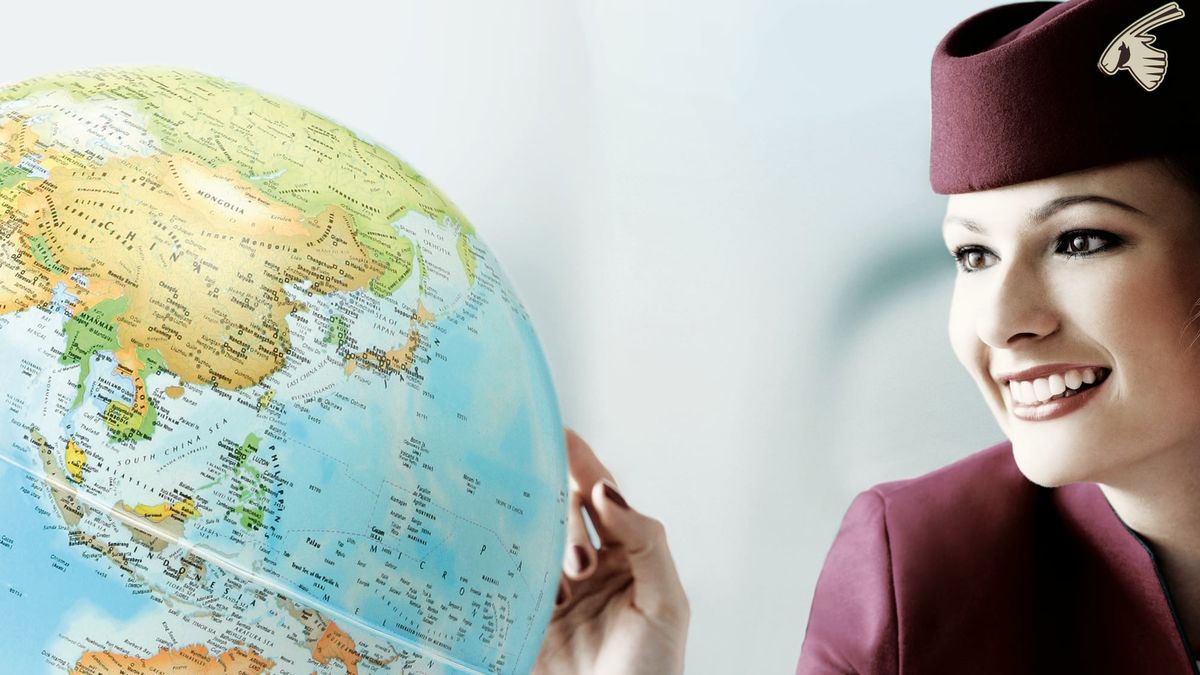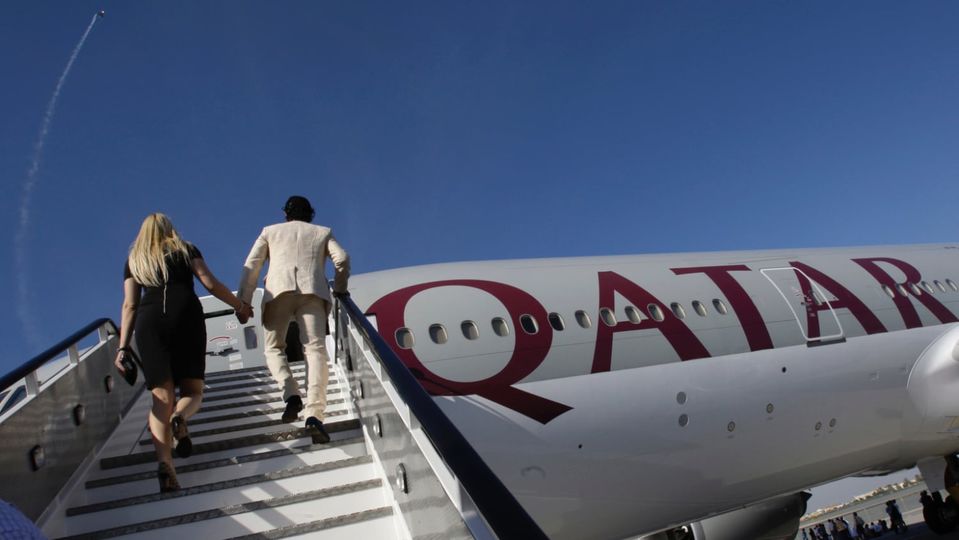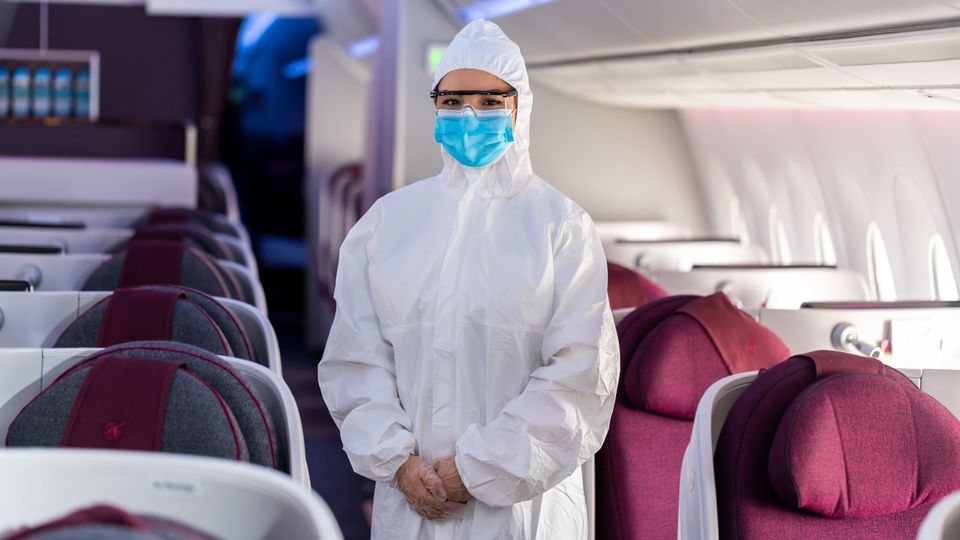In the coronavirus era, Qatar Airways charts a bold new flightpath
"I always have said that every downturn has an opportunity," Qatar Airways CEO tells Executive Traveller.

Qatar Airways is now the world’s biggest and most popular international airline, and it doesn’t intend to surrender that crown in a hurry.
In April 2020, according to figures supplied by the International Air Transport Association, almost 18% of all worldwide air travellers took their seat on a Qatar Airways flight.
This staggering market share was triple that of the airline’s nearest competitor, and more than the next four carriers combined.
The leaderboard for May is likely to be little different, although the tussle for top spot will resume from June as airlines around the world cautiously rebuild their crippled networks city by city and flight by flight.
But for Qatar Airways, the coronavirus crisis put truth into the old saw that a problem is an opportunity seen from the wrong end.
In the early months of 2020, as Covid-19 snowballed from a virus outbreak in mainland China to a global pandemic, airlines scaled back and in many cases suspended all international flying.
Airports which were reliable hubs for connecting flights – Dubai, Abu Dhabi, Singapore, Hong Kong – pulled down the shutters on transit passengers.
And Qatar Airways zigged when the others zagged.
Mission: Rescue
“We decided that there are people all over the world that want to get back home – who have been on holiday, who have been to visit families, people who have gone for business,” recounts Qatar Airways Group CEO, His Excellency Akbar Al Baker.
“So we decided that we should not be the airline that stopped, but that we should keep going.”
Al Baker seized on a new mission for the carrier which he has led for 23 of its 27 years: simply put, it should be “the airline which brings people home.”
“We wanted to continue serving the passengers that were booked on us, and also passengers that are stranded,” Al Baker tells Executive Traveller.
“We continued operating to the major cities, connecting east to west and west to east. And looking at this, a lot of governments then approached us to repatriate their stranded citizens.”
Those government calls added some 220 flights to the airline’s own tally of over 15,000 scheduled commercial flights in April.
Many of those repatriation flights also rescued passengers who found themselves caught out on cruise ships, Al Baker recounts.
“A lot of cruise liners were stranded due to the Covid-19 problems they had on board, so we repatriated those passengers, and we still are receiving requests to repatriate crews from the cruise liners that need to get back home.”
The rapid ramp-up was a substantial undertaking in a short amount of time, and included consulting with healthcare professionals on appropriate measures for airline crew and passengers alike.
While this meant cabin crew had to don head-to-toe personal protective equipment and minimise their interaction with passengers, Al Baker says “it was very important for us for people to know that we were a safe airline, that we were an airline that they could have confidence in.”
A rare opportunity
Of the 1.8 million passengers which Qatar Airways carried in April, many were first-time travellers on the Oneworld airline, Al Baker says – and it’s his intent that it won’t be their last.
“I always have said that every downturn has an opportunity, and even a catastrophe has some parts which can be utilised, “ Al Baker tells Executive Traveller. “And this is exactly where we are very good at Qatar Airways.”
Part of seizing this opportunity was to offer a rare status match to the top-tier frequent flyers of staunch globe-striding rivals Emirates, Etihad Airways, Singapore Airlines and Turkish Airlines.
It was a way to bring high-value passengers into the fold, giving them a full year of perk-laden Platinum or Gold membership to Qatar’s own Privilege Club loyalty scheme plus enough points for a free business class upgrade on their first Qatar Airways flight.
The airline also extended the status of its own fares by one year, “allowed people to change their tickets without any change fee and extended validity of the tickets for a long time,” Al Baker says.
“When people asked for refunds, we were very quick to give it to them,” he adds, but travellers who opted for a travel credit voucher received a 10% bonus in value on top of the booked fare.
In short, Al Baker says, “we did everything that was necessary to let people to know that we are there for them (and) that if they are our passengers, we will not leave them stranded.”
The long flight back to 'normal'
But for Qatar Airways, as with all airlines, the journey back to ‘normal’ will be a long one.
Its international network has this month ticked up to 45 destinations – a 50% increase over the end of May, but still well shy of the “ more than 160 business and leisure destinations” which the airline served at the start of this year.
Al Baker has put the brakes on new aircraft deliveries from Airbus and Boeing until at least 2022 and will downsize its 200-strong fleet by 25% during the drawn-out recovery period from the worldwide coronavirus pandemic, with the travel industry taking "around two to three years to get back to 2019 levels," Al Baker forecasts.
“I think I would be very surprised if things will happen before 2023/2024.”




QF
11 Jul 2014
Total posts 1024
Very Bullish and Very Smart, compare it to having order takers in the good times and increasing staff hunters in the down turn.
24 Jun 2020
Total posts 2
I must admit that it was a smart move by Qatar to offer the status match with Virgin's Velocity program. With Virgin going into Administration there is no guarantee that the Velocity program will emerge with the same benefits , points etc. Naturally many Velocity members were (and still are) nervous.
I have never flown Qatar before but I took advantage of the status match. So no prizes for guessing which airline I will be flying once international travel restrictions are lifted. Well done Qatar !
31 May 2013
Total posts 29
Interesting move - but also key to take into account how many of their crew and staff in DOH become infected, we'll never know that number but would imagine its hundreds. Considering most of their labor is foreign nationals with working conditions we wouldn't accept in Australia, the duty of care to staff is questionable. Looking at the NSW health Website Qatar have carried in most of the infected pax into Australia, so lots of exposure across their network.
With 89K covid cases in a country of 2mill, I question the impact Qatar's decision has had on the Qatari people.
Before hailing Qatar Airways as heroes - I do think it necessary to present key facts. Smart business move, don't get me wrong, but what has been the cost to Qatar staff, and Qatari people - perhaps costs the Qatari government was willing to take, easier with a sate owned airline tasked with social and economic development of the state. Whilst not saying this is wrong, an interesting contrast at least to Australia.
03 May 2013
Total posts 684
I see your point but the cohort of cabin crew (early 20's to early 40's) who may have been infected had a 98.8% chance of recovery. Further if they had been isolated(which I think infected crew were) it would have been a short term negligible issue. Qatar's biggest mistake is the 777X - horrible choice of aircraft to replace the A380-just sayin.
Hi Guest, join in the discussion on In the coronavirus era, Qatar Airways charts a bold new flightpath